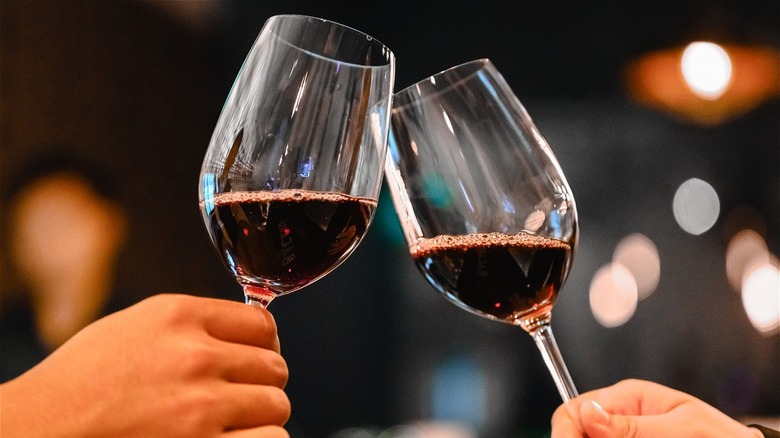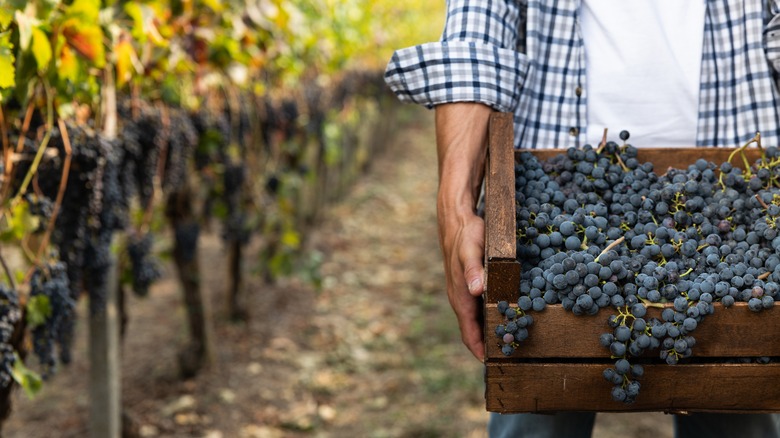How Upcycled Wine Waste Can Be A Flavor Enhancer
In the same way the sky is blue, it's a fact that Americans love wine. According to Forbes, Americans spent $14.4 billion on wine through March 2018 to 2019. Among the most popular are chardonnay, cabernet sauvignon, and pinot grigio.
Per Liquor, wine is produced by first harvesting grapes either by hand or machine. Farmers tend to choose the best time of the year for picking by performing regular taste tests of the fruit. Next, the grapes are pressed, each batch with different methods depending on the type of wine being created. Then, the product is fermented and aged before being filtered and bottled for shelves.
When wine is made, however, it leaves behind pomace — a mixture of pulps, seeds, and skins that are usually wasted, according to WineMaker. Per Food Dive, pomace can be reused as a fertilizer, a renewable energy source, or by following the unique plan of one Canadian company.
A waste-free way
President Bill Broddy of CrushDynamics discovered just how nutritious pomace is after observing a bear eating it on a bike ride, according to Food Dive. After an informative conversation with Canadian wine advocate (now lead scientist of CrushDynamics), Broddy had a lightbulb moment: he realized that pomace might have valuable uses beyond its current limitations.
"This has global implications," CEO Kirk Moir said. "We're just trying to find good homes for 15 million metric tons of winemaking derivatives on a global basis every year. We have a fairly big, big, hairy, audacious goal." According to Moir, the company's plan is to turn leftover pomace into protein powder, and it's currently working on a patent for a process that removes the bitter flavor and reduces overall costs.
The company's golden goose lies in their two products: Ruby Purée and Gold Purée. "We see those as incredibly useful levers to come up with an ever-growing family of products," Moir said. To supplement the growing business, CrushDynamics raised $3.6 million in financing — marking a "critical milestone" for the Canada-based company, per Vegconomist. So after learning of this innovative strategy that CrushDynamics is striving for, you'll never look at homemade wine making the same way again.

